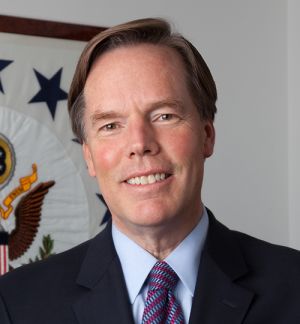We have two impressive people running for president. I fully realize that is not a judgment universally shared in our polarized, partisan, red-blue divided nation. But Barack Obama and Mitt Romney are both smart and knowledgeable leaders of admirable character who have succeeded in every aspect of their careers. The campaign has showcased, however, their strikingly different life experiences and worldviews. There is every reason to believe they would take us in very different directions in foreign policy.
Romney’s two years as a young Mormon missionary in France, exposure to the international marketplace in business and, especially, his adept leadership in saving the 2002 Salt Lake Olympics — have given him many of the necessary diplomatic skills presidents need to cope with a complex global environment. He has been at his best as a candidate in calling for strong American global leadership and for insisting that a revived domestic economy and balanced budgets are the only way to sustain our military and diplomatic power abroad.
At the same time, Romney often strikes a curiously anachronistic tone in describing America’s role in the world. With the sole exception of Monday’s debate when he shifted abruptly left in a transparent attempt to woo independent voters, he has championed a “Back to the Future’’ foreign policy that consigns Russia and China to an enemies list, the Palestinians to the ash heap of history, and our European allies to a failed experiment in socialist economics. Throughout the campaign, Romney has displayed a startling tendency to cast thunderbolts against friends and foes alike in a way that misses the depth and complexity of international politics. You have to wonder how Romney managed to insult the British on the eve of the Olympics. How effective would he be in convincing Beijing and Moscow to help on Iran, Syria, and North Korea in the real world of the presidency?
Romney’s most serious foreign policy problem however, revealed itself in the foreign policy debate. He repudiated in one night the strong criticisms he had made of Obama over the past year on Iran, Iraq, Afghanistan, and Russia. In trying to be all things to all people, he resurfaced doubts about the most important qualities we need in our presidents — the core beliefs and consistency of values that are the best predictors of how he would lead in a crisis. This may explain his erratic and excessively partisan reaction to the Benghazi attacks and his puzzling shifts in how to handle the Iran nuclear threat.
Obama, in contrast, has adopted a nuanced and sophisticated approach to international issues as president. In some ways, he has become in office our first real post-Cold War president. Obama has demonstrated a rare ability to lead without alienating friends as diverse as India, Brazil, South Korea, and France. His has been a thoroughly modern presidency in pushing others to share our burden of leadership on issues fundamental to our security — limiting nuclear proliferation, repairing divisions with the Muslim world, and refocusing us on the transnational challenges of climate change, drug and crime cartels, and terrorism. He has real achievements in ending the Iraq war, preparing a way out of Afghanistan, pursuing Al Qaeda terrorists, and removing Middle East dictators from office. Obama’s record is not perfect — the Palestinian-Israeli negotiations and Syrian civil war are notable disappointments — but it is undeniably consequential in its main elements.
We entrust our national security and vital war and peace decisions to our presidents. The foreign policy debate and his record in office tell us a lot about Obama as commander-in-chief. Romney’s debate decision to slide to the middle may be good politics in the battleground states. But, in the very different realm of foreign policy, it creates a real problem for him. It matters if our leaders have an identifiable consistency to their beliefs. His foreign policy pronouncements are so vague and general that it is impossible to predict how he would react on the two toughest challenges of 2013.
Will he choose to negotiate with the Taliban to bring the war to an end and ensure a safe departure for our troops? And on Iran, will he choose a real negotiation that will require patience and dexterity or will he put greater emphasis on the use of force? How about all the issues he rarely discusses — climate change, the threat of crime and drug cartels and cyber threats?
Romney’s debate strategy may have made sense for domestic politics but only added to the questions about his readiness to lead the world’s indispensable global power.
Burns, Nicholas. “Romney’s shift on foreign policy creates confusion.” The Boston Globe, October 25, 2012





